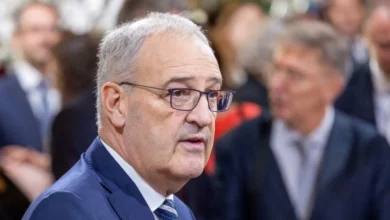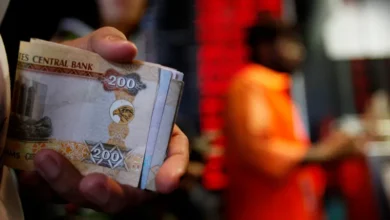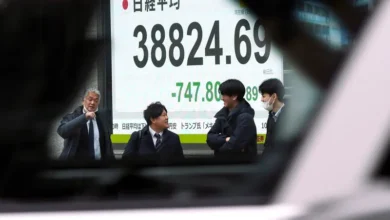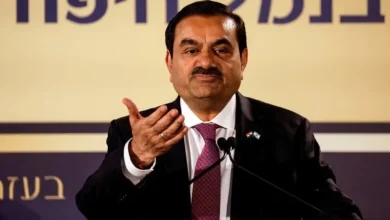Another Egyptian currency devaluation may be on horizon amid economic crisis
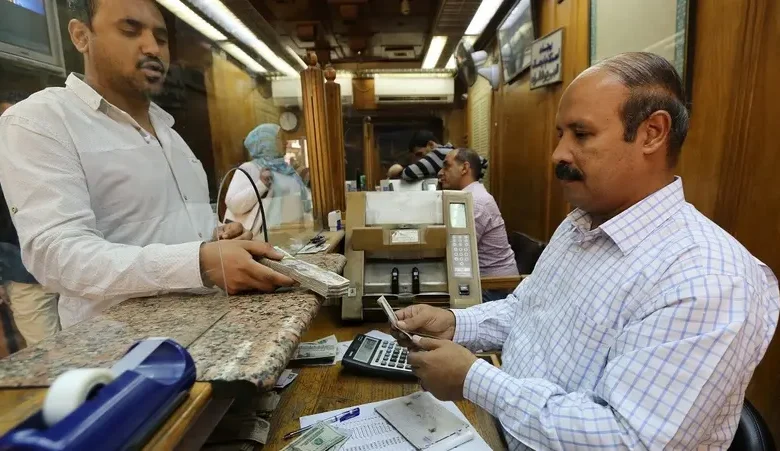
Egypt remains engulfed in a severe economic crisis that has left its population of over 105 million in a state of uncertainty. However, one thing seems almost certain: another currency devaluation may be on the horizon.
This anticipated move would mark the fourth major devaluation of the Egyptian pound since early 2022 and might be the largest yet. If implemented correctly, it could potentially end the country’s worst hard currency crisis in decades, attracting foreign capital to its $400 billion economy and saving it from the brink of collapse.
Given the country’s urgent financial needs, estimated by Goldman Sachs to be around $25 billion over the next four years, Egypt faces a critical moment. However, the timing of the devaluation depends on both external and domestic issues, with authorities concerned about the inflationary impact on an already suffering population, according to a comprehensive report by Bloomberg.
Bloomberg has identified five key areas to watch for the timing of the next currency devaluation:
Narrowing the gap between the black market and the official exchange rate:
After reaching a record high of over 70 Egyptian pounds to the US dollar in the black market earlier this month, the pound has seen a partial reversal. A new crackdown has forced many illegal traders to shut down their operations, bringing the rate between 60 and 65 at the beginning of this week.
The derivatives market, used for hedging and speculation, indicates a sharp decline in the Egyptian pound’s value in the future, even as traders scale back bets on the currency’s decline.
Some global banks predict a smaller adjustment than investors expect. Société Générale forecasts Egypt will allow its exchange rate to drop to a range of 40-45, a prediction similar to Deutsche Bank’s expectations.
Guidance from the International Monetary Fund (IMF)
According to many sources, the IMF has been urging Egypt for months to move toward devaluation of the currency, a key factor in discussions about a new, extended agreement with the bank and partners that could secure about $10 billion in financing for Egypt.
The exchange rate situation, characterized by its multiplicity, is seen as disastrous by Kristalina Georgieva, the Managing Director of the International Monetary Fund (IMF), who advocates for the market to determine these rates.
In an interview with Al Arabiya Business on the sidelines of the World Governments Summit held in Dubai, Georgieva emphasized the need for Egypt to move toward allowing the market to set the exchange rate.
Georgieva revealed that the fundamental aspects of the agreement with Egypt regarding the proposed loan were agreed upon, mentioning that their delegation’s visit to Cairo was “relatively close” to success. She highlighted that Egypt’s financing needs have grown, and the IMF is working with other parties to fulfill these needs.
Interest rate hikes
Egypt typically devalues its currency in conjunction with tightening monetary policy, a move aimed at curbing domestic demand and attracting investment in local assets by making the returns more profitable.
The Central Bank raised the benchmark interest rate on the same day it devalued the currency twice in 2022 and made a significant increase less than two weeks before the last devaluation. Authorities raised the deposit interest rate for the first time since August to 21.25 percent in February – an all-time high – although that does not rule out another move soon.
Strategists at Société Générale said in a report that the latest move “could herald a broad policy package, likely defined by the IMF to unlock financing.”
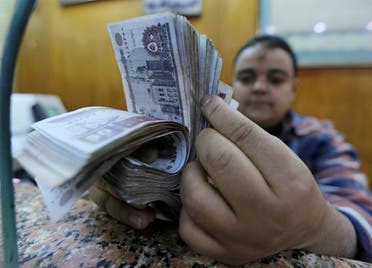
Major deals pay off
Egypt has auctioned off more than 20 state-owned assets, from banks to power plants and petrol stations, seeking to secure foreign currency. Sales have picked up after a slow start, with Egypt announcing over $2 billion in the second half of 2023.
A new major investment could give the authorities the financial strength needed to devalue the pound without risking overshooting. One possibility involves talks by Abu Dhabi to buy and develop Ras al-Hikma, a prime area on Egypt’s Mediterranean coast – a project preliminarily estimated to cost $22 billion.
However, analysts at Barclays wonder whether the potential lengthy timeline for any deal could “yield immediate benefits” for Egypt, especially since the size of the direct foreign investment the country might receive as a result is uncertain. Barclays economists, including Ibrahim Razek, said in a report: “Egypt’s urgent financing needs have impacted its outlook, indicating limited near-term effects for the Ras al-Hikma project.”
Ramadan
One timing hurdle coming up soon is the month of Ramadan, which is set to begin around March 10th this year, potentially setting an unofficial deadline for the currency devaluation before then. During this holy month, Muslims worldwide fast from dawn till sunset and break their fast with families and friends over special meals. It’s unlikely that authorities would wait until then to expose Egyptians to a sudden price shock.
However, the government may be preparing the population for rising inflation. Last Wednesday, it announced a 50 percent increase in the minimum wage for state employees starting in March. It’s part of a broader social protection package the authorities say is worth about 180 billion Egyptian pounds ($5.8 billion), although they have not specified a timeframe.
Farouk Soussa, an economist at Goldman Sachs, said Egypt is likely to allow more flexibility in the pound while continuing to “manage the official exchange rate in the foreseeable future.” Demand for hard currency remains high at a time when the banking system lacks sufficient foreign currency liquidity.
Soussa said: “To overcome these challenges, we believe more policy tightening is needed, and the official sector must build adequate reserves of foreign currency liquidity before any attempt to unify the exchange rate through currency devaluation.”

